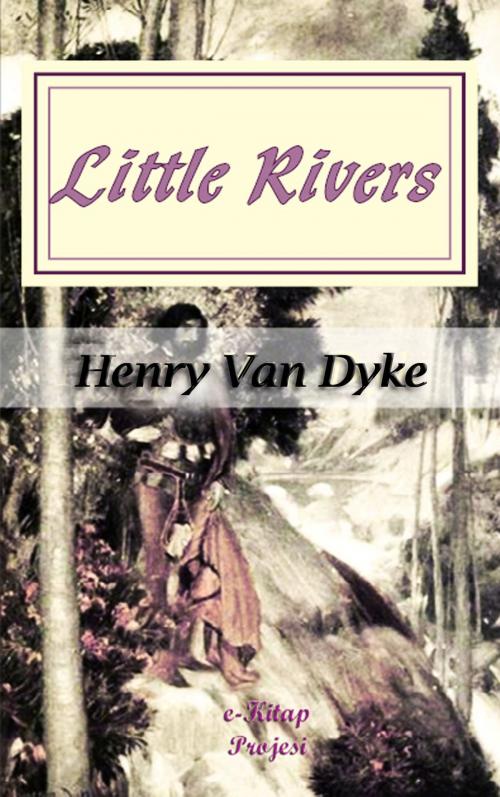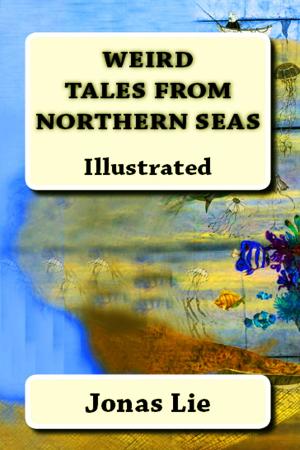| Author: | Henry Van Dyke | ISBN: | 9789635273997 |
| Publisher: | eKitap Projesi | Publication: | June 12, 2015 |
| Imprint: | eKitap Projesi | Language: | English |
| Author: | Henry Van Dyke |
| ISBN: | 9789635273997 |
| Publisher: | eKitap Projesi |
| Publication: | June 12, 2015 |
| Imprint: | eKitap Projesi |
| Language: | English |
“There’s no music like a little river’s. It plays the same tune (and that’s the favourite) over and over again, and yet does not weary of it like men fiddlers.
It takes the mind out of doors; and though we should be grateful for good houses, there is, after all, no house like God’s out-of-doors. And lastly, sir, it quiets a man down like saying his prayers.”——
Robert Louis Stevenson: Prince Otto.
A river is the most human and companionable of all inanimate things. It has a life, a character, a voice of its own, and is as full of good fellowship as a sugar-maple is of sap. It can talk in various tones, loud or low, and of many subjects, grave and gay. Under favourable circumstances it will even make a shift to sing, not in a fashion that can be reduced to notes and set down in black and white on a sheet of paper, but in a vague, refreshing manner, and to a wandering air that goes;
“Over the hills and far away.”
For real company and friendship, there is nothing outside of the animal kingdom that is comparable to a river.
I will admit that a very good case can be made out in fa-vour of some other objects of natural affection. For example, a fair apology has been offered by those ambitious persons who have fallen in love with the sea. But, after all, that is a formless and disquieting passion. It lacks solid comfort and mutual confidence. The sea is too big for loving, and too uncertain. It will not fit into our thoughts. It has no personality because it has so many. It is a salt abstraction. You might as well think of loving a glittering generality like “the American woman.” One would be more to the purpose.
Mountains are more satisfying because they are more in-dividual. It is possible to feel a very strong attachment for a certain range whose outline has grown familiar to our eyes, or a clear peak that has looked down, day after day, upon our joys and sorrows, moderating our passions with its calm aspect. We come back from our travels, and the sight of such a well-known mountain is like meeting an old friend unchanged. But it is a one-sided affection. The mountain is voiceless and imperturbable; and its very loftiness and serenity sometimes make us the more lonely.
“There’s no music like a little river’s. It plays the same tune (and that’s the favourite) over and over again, and yet does not weary of it like men fiddlers.
It takes the mind out of doors; and though we should be grateful for good houses, there is, after all, no house like God’s out-of-doors. And lastly, sir, it quiets a man down like saying his prayers.”——
Robert Louis Stevenson: Prince Otto.
A river is the most human and companionable of all inanimate things. It has a life, a character, a voice of its own, and is as full of good fellowship as a sugar-maple is of sap. It can talk in various tones, loud or low, and of many subjects, grave and gay. Under favourable circumstances it will even make a shift to sing, not in a fashion that can be reduced to notes and set down in black and white on a sheet of paper, but in a vague, refreshing manner, and to a wandering air that goes;
“Over the hills and far away.”
For real company and friendship, there is nothing outside of the animal kingdom that is comparable to a river.
I will admit that a very good case can be made out in fa-vour of some other objects of natural affection. For example, a fair apology has been offered by those ambitious persons who have fallen in love with the sea. But, after all, that is a formless and disquieting passion. It lacks solid comfort and mutual confidence. The sea is too big for loving, and too uncertain. It will not fit into our thoughts. It has no personality because it has so many. It is a salt abstraction. You might as well think of loving a glittering generality like “the American woman.” One would be more to the purpose.
Mountains are more satisfying because they are more in-dividual. It is possible to feel a very strong attachment for a certain range whose outline has grown familiar to our eyes, or a clear peak that has looked down, day after day, upon our joys and sorrows, moderating our passions with its calm aspect. We come back from our travels, and the sight of such a well-known mountain is like meeting an old friend unchanged. But it is a one-sided affection. The mountain is voiceless and imperturbable; and its very loftiness and serenity sometimes make us the more lonely.















